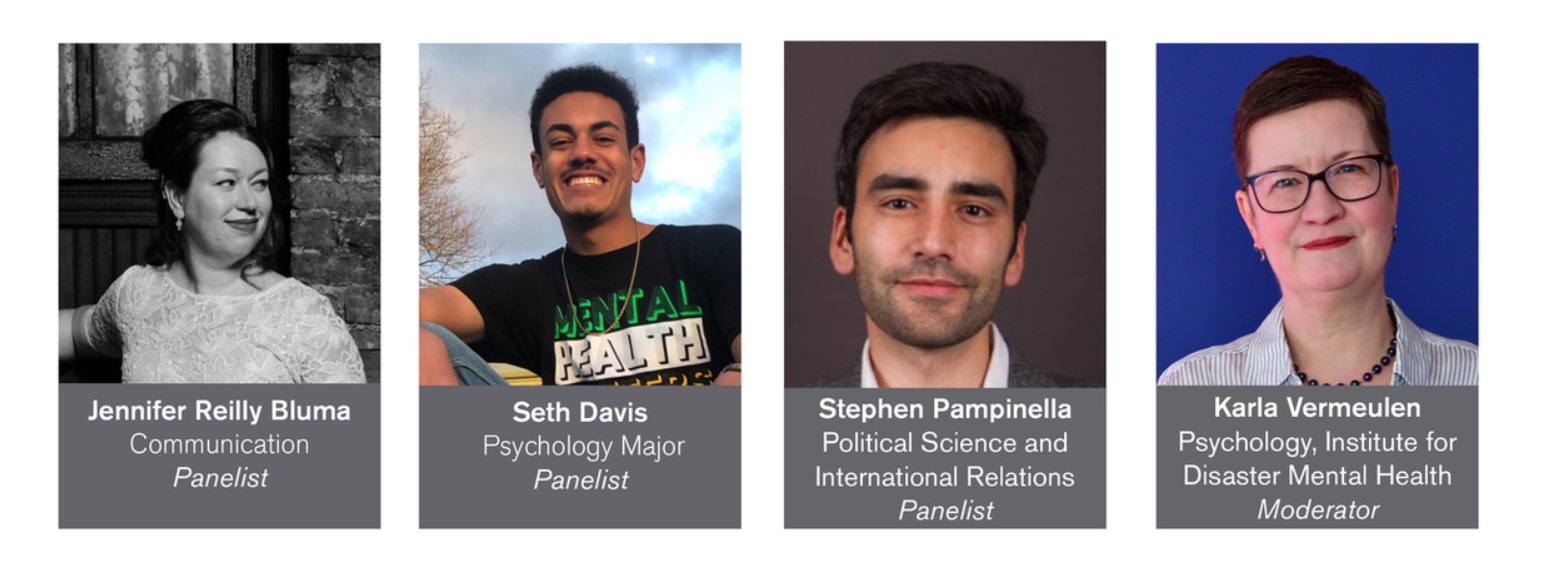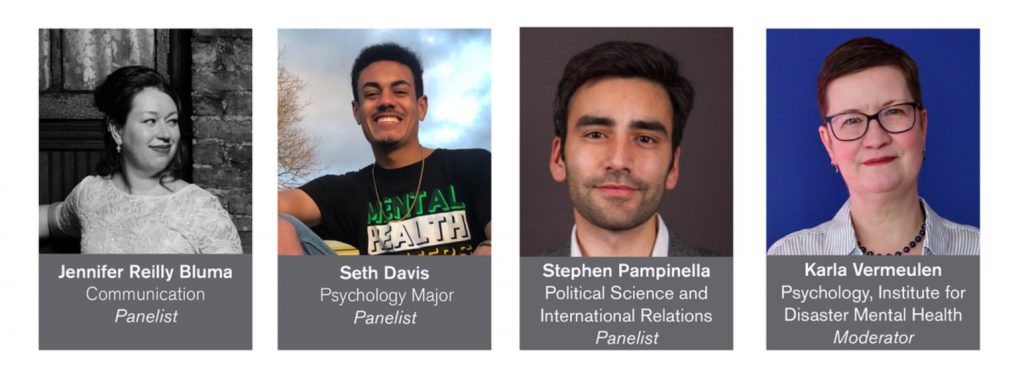Can social media be good for us? “Without Limits” panel looks to accentuate the positive
At a historical moment when social media platforms face increasing scrutiny for their role in society and politics, a College of Liberal Arts & Sciences Without Limits panel went in search of positive attributes of these powerful, omnipresent technologies.
“Reclaiming Social Media for Better Well-being, Conversation and Advocacy” featured Associate Professor Stephen Pampinella, Lecturer Jennifer Reilly Bluma, and Seth Davis ’23 (Psychology), a member of the Student Resiliency Advocates. Karla Vermuelen, deputy director of the Institute for Disater Mental Health, served as the moderator.
Davis, a resident of Glens Falls, New York, described his experiences with “toxic positivity” on social media, and how he resists the pressure to show only the happiest and best version of himself when posting online.
“We see 1% of people’s actual lives, just all the highlights,” he said. “I try to be very transparent with what I’m going through, being as authentic as I can, because it’s important to see the real self. When we speak from that clarity, and we speak from our own truth, we are more sound on who we are.”
When the conversation turned to political discourse, Pampinella acknowledged that social media has been a disruptive factor, for better and for worse, but he found room for optimism in the way online tools can help narratives reach new audiences.
“If you post something about issues in the world, you’re telling a story about those issues, and that story can be powerful,” he said.
Bluma joined him in noting how social media can be a galvanizing force, especially for young people, even as this too can have its downsides.
“I think this ability to participate at a much greater level has renewed youth’s interest on political issues, but it comes with certain complications,” she said. “Social media creates these walled gardens through algorithms as well as the rhetoric of cancel culture. When we put these two constraints together, you have some gaps in the conversation that can affect democratic expression.”
Ultimately, the panelists agreed that while social media can be harmful, it is not inherently so, and that the best way for societies to leverage these powerful tools is to learn to respect their power and harness it for good.
“Our own action can be structured in the form of a solution, or a form of collective action that can resolve that problem,” said Pampinella. “The solution is going to be how audiences can work together collaboratively to create a future that’s better for them.”
About Without Limits: Interdisciplinary Conversations in the Liberal Arts
SUNY New Paltz’s College of Liberal Arts & Sciences offers this series to make connections among the many aspects of the liberal arts while inviting campus and community partners to investigate the meaning and role of liberal education in the 21st century.
The theme for the 2021-22 academic year is “Getting Better: How We Can Still Solve Our Biggest Problems.” Each of the discussions delves into how the liberal arts can empower us to face the struggles experienced within the last year and pave the way for a brighter future.



